|
Books Should Be Free Loyal Books Free Public Domain Audiobooks & eBook Downloads |
|
|
Books Should Be Free Loyal Books Free Public Domain Audiobooks & eBook Downloads |
|
Fiction |
|---|
|
Book type:
Sort by:
View by:
|
By: Edith Nesbit (1858-1924) | |
|---|---|
 Story of the Amulet
Story of the Amulet
The third of the series featuring Cyril, Anthea, Robert and Jane: four children who are, as they often say, "the sort of people that wonderful things happen to". In 'Five Children and It' they were lucky enough to meet the magical, wish-granting Psammead - and in this final book they meet him once again. He guides them to an ancient Amulet that will help them find their hearts' desire - but it's only half an amulet, and seeking for the other half has them whizzing about through time on another series of amazing adventures. | |
 New Treasure Seekers or, The Bastable Children in Search of a Fortune
New Treasure Seekers or, The Bastable Children in Search of a Fortune
| |
 Oswald Bastable and Others
Oswald Bastable and Others
| |
 In Homespun
In Homespun
| |
By: Edith Wharton | |
|---|---|
 The House of Mirth
The House of Mirth
Wharton's classic story of an aging (by Victorian-era standards) spinster socialite who would rather marry for money than for true love. | |
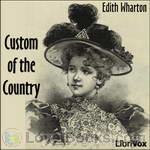 Custom of the Country
Custom of the Country
Edith Wharton was a novelist of manners of late 19th Century New York “Society”, who spent much of her life in France. In this novel she tells the story of Undine Sprague, the thrice- (or more) married, upwardly mobile beauty from “Apex City”, transplanted to New York, and finally to France, leaving the dead and wounded in the wake of her “experiments in happiness”. | |
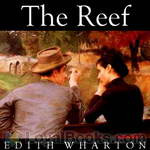 The Reef
The Reef
George Darrow, Anna Leath’s first love, is finally coming from London to propose to her. However, he drifts to an affair with Sophy Viner, Anna’s daughter’s naïve and young governess. Sophy’s relationship with Darrow and Anna’s family can threaten his success. In this novel, as in many of Wharton’s other well known novels, we see the eternal love triangle. With her sly and lovely writing style, Wharton delivers to us in this wonderful novel a cast of unforgettable characters and many unforgettable scenes which we can vividly imagine. What would Darrow choose: success or love? Would Anna marry him despite his affair with Sophy? (Summary by Stav Nisser.) | |
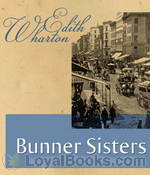 Bunner Sisters
Bunner Sisters
“Bunner Sisters,” like “The Age of Innocence” is set in 1870s New York, however the lives of Ann Eliza and Evelina Bunner reflect impoverished New York. The sisters run a “very small shop, in a shabby basement, in a sidestreet already doomed to decline.” Shabby as it is, the sisters are happy in their small orderly community of supportive women. The story tells of the destruction of this life, and how the once content sisters are thrown into the realistic world outside of their little shop. | |
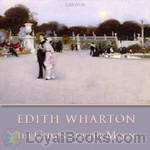 The Glimpses of the Moon
The Glimpses of the Moon
"The Glimpses of the Moon" (1922) is about Nick and Susy Lansing, both of whom live a decadent life in Europe by sponging off wealthy friends. They marry out of convenience and have an "open" relationship, but are unprepared for where their feelings will take them. | |
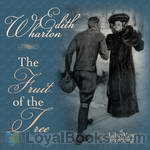 The Fruit of the Tree
The Fruit of the Tree
When published in 1907, this novel about the lives of a wealthy mill owner, her socially progressive husband and friends caused a stir due to its treatment of drug abuse, mercy killing, divorce and second marriages. | |
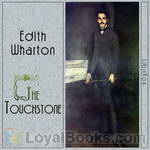 The Touchstone
The Touchstone
Stephen Glennard's career is falling apart and he desperately needs money so that he may marry his beautiful fiancee. He happens upon an advertisement in a London magazine promising the prospect of financial gain. Glennard was once pursued by Margaret Aubyn, a famous and recently deceased author, and he still has her passionate love letters to him. Glennard removes his name from the letters and sells them, making him a fortune and building a marriage based on the betrayal of another. | |
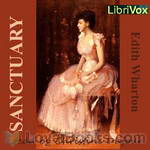 Sanctuary
Sanctuary
Kate Orme, shocked by the discovery of her fiance's complicity in a tragedy, and by society's willingness to overlook such transgressions, nevertheless marries him. Years later, her son faces a moral crisis similar to the one that showed her his father's moral weakness. (Introduction by Christine Dufour) | |
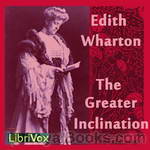 The Greater Inclination
The Greater Inclination
This is Edith Wharton's earliest published collection of short stories (1899). Like much of her later work, they touch on themes of marriage, male/female relationships, New York society, and the nature and purpose of art. One of the stories, "The Twilight of the God," is written as a short play. The role of Warland is read by mb, and the role of Oberville by Bruce Pirie. | |
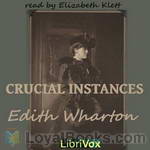 Crucial Instances
Crucial Instances
This is Edith Wharton's second published collection of short stories (1901). One of these seven stories, "Copy: A Dialogue," is written as a short play. The role of Hilda is read by Arielle Lipshaw, and the role of Ventnor by Mark F. Smith. | |
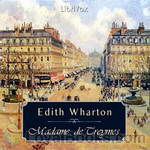 Madame de Treymes
Madame de Treymes
Edith Wharton's 1907 novella explores the milieu of Americans living abroad in Paris. New Yorker John Durham travels to Paris to woo an old flame, Fanny Frisbee, now the Marquis de Malrive. Fanny is separated from her husband and wants to marry John and return to America, but she doubts whether her Catholic husband will grant her a divorce. When John meets Fanny's sister-in-law, the enigmatic Madame de Treymes, he hopes she may be able to help them in their quest for happiness. (Introduction by Elizabeth Klett) | |
 Tales of Men and Ghosts
Tales of Men and Ghosts
Tales of Men and Ghosts was published as a collection in 1910, though the first eight of the stories had earlier appeared in Scribner's and the last two in the Century Magazine. Despite the title, the men outnumber the ghosts, since only "The Eyes" and "Afterward" actually call on the supernatural. In only two of the stories are women the central characters, though elsewhere they play important roles. Wharton enjoys subjecting her subjects -- all of them American gentlemen and gentlewomen, in the conventional senses of the word -- to various moral tests and sometimes ironic tests... | |
 Xingu 1916
Xingu 1916
| |
 The Triumph Of Night 1916
The Triumph Of Night 1916
| |
 The Choice 1916
The Choice 1916
| |
 Kerfol 1916
Kerfol 1916
| |
 Autres Temps... 1916
Autres Temps... 1916
| |
By: Edith [Editor] Carrington | |
|---|---|
 Dick and His Cat and Other Tales
Dick and His Cat and Other Tales
| |
By: editor: Frank Munsey | |
|---|---|
 The Scrap Book Sampler
The Scrap Book Sampler
18 works -- two non-fic articles & one short fiction or poetry each -- from issues March, April, May, June, July, & August 1906 of The Scrap Book, Volume 1, edited by Frank Munsey. As he states in the editorial of the April 1906 issue (Vol 1, Iss 2) this was a sort of supplement to the editor's popular monthly, Munsey's Magazine. The Scrap Book is very like an American version of Punch with many short, often humorous articles interspersed with at least one short story, some poetry, and several longer non-fic pieces. The Scrap Book ran up to 1922. | |
By: Edmond de Goncourt (1822-1896) | |
|---|---|
 Germinie Lacerteux
Germinie Lacerteux
| |
 Renée Mauperin
Renée Mauperin
| |
By: Edmond Hamilton | |
|---|---|
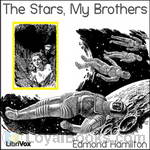 The Stars, My Brothers
The Stars, My Brothers
Edmond Hamilton (1904 – 1977) had a career that began as a regular and frequent contributor to Weird Tales magazine. The first hardcover publication of Science Fiction stories was a Hamilton compilation, and he and E.E. “Doc” Smith are credited with the creation of the Space Opera type of story. He worked for DC Comics authoring many stories for their Superman and Batman characters. Hamilton was also married to fellow author Leigh Brackett. – Published in the May, 1962 issue of Amazing Stories “The Stars, My Brothers” gives us a re-animated astronaut plucked from a century in the past and presented with an alien world where the line between humans and animals is blurred. | |
By: Edmondo De Amicis (1846-1908) | |
|---|---|
 Cuore (Heart) An Italian Schoolboy's Journal
Cuore (Heart) An Italian Schoolboy's Journal
| |
By: Edmund Day (1866-1923) | |
|---|---|
 The Round-Up A romance of Arizona novelized from Edmund Day's melodrama
The Round-Up A romance of Arizona novelized from Edmund Day's melodrama
| |
By: Edmund Dulac (1882-1953) | |
|---|---|
 Edmund Dulac's Fairy-Book Fairy Tales of the Allied Nations
Edmund Dulac's Fairy-Book Fairy Tales of the Allied Nations
| |
By: Edmund Gosse | |
|---|---|
 Gossip in a Library
Gossip in a Library
A collection of informal essays about books in his library. He combines commentary, translations, and humorous asides about authors and their subjects. | |
By: Edmund Leamy (1848-1904) | |
|---|---|
 The Golden Spears And Other Fairy Tales
The Golden Spears And Other Fairy Tales
| |
 Irish Fairy Tales
Irish Fairy Tales
| |